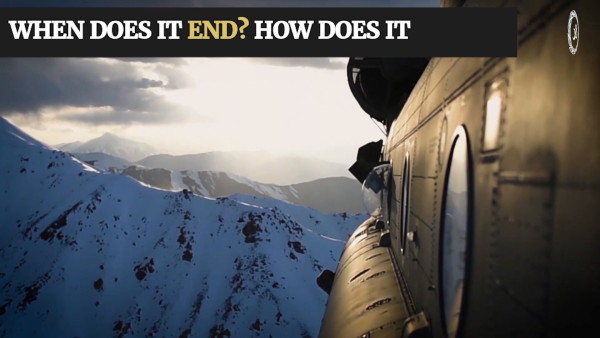

If your words of the day today were “cautious optimism,” you’re in luck, because Army Col. Dave Zinn, who recently returned from Afghanistan, offered exactly that to reporters on Wednesday.
The Afghan security forces are “now in the lead,” and October’s parliamentary elections proved their resiliency, said Zinn, commander of the 2nd Infantry Brigade Combat Team, 4th Infantry Division, who recently served as deputy commander of the Train, Advise, and Assist Command-South in Kandahar.
“The fact that in the face of Taliban threats to the Afghan people, that we observed long lines of Afghans standing in line waiting to vote and then casting their vote, tells me a couple of things,” Zinn told reporters on Wednesday. “No. 1: The Afghan people have confidence in the Afghan security forces. And number two, that they see the elections as important for the future of their country.”
He also said local leaders in southern Afghanistan told them, “The Afghan people are tired of the fighting, and yearn for peace.”
But with U.S. and Taliban negotiators taking tentative steps towards that peace during talks in Qatar this week, there’s a larger question on everyone’s mind: When will Afghanistan not need U.S. and coalition assistance anymore?
President Donald Trump tweeted on Wednesday that peace negotiations with the Taliban “are proceeding well,” possibly signaling that a full U.S. troop withdrawal could be near. Indeed, the Taliban claimed last week that foreign forces would vacate the country within 18 months under a draft peace agreement.
But just this December, the incoming head of U.S. Central Command told Congress that Afghan security forces would collapse if U.S. forces pulled out.
“If we left precipitously right now, I do not believe they would be able to successfully defend their country. I don’t know how long it’s going to take,” Marine Lt. Gen. Kenneth F. McKenzie Jr. told lawmakers during his confirmation hearing. “I think that one of the things that would actually provide the most damage to them would be if we put a time line on it and we said we were going out at a certain point in time.”
“As we’ve seen when we precipitously withdrew from Iraq earlier, certain effects probably follow from that,” he added.
Zinn couldn’t speak to the larger strategic-level question of whether the Afghan government could stand on its own, but he did say the Afghan troops he mentored had gotten better during his time in country, although his assessment remained cautious.
“I would certainly hesitate to use the word ‘dramatic’ improvement,” he said.